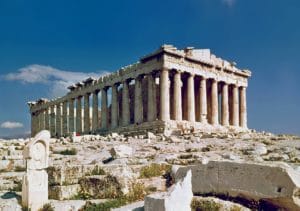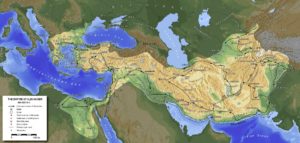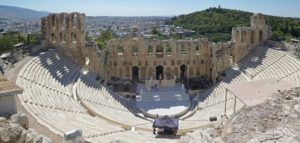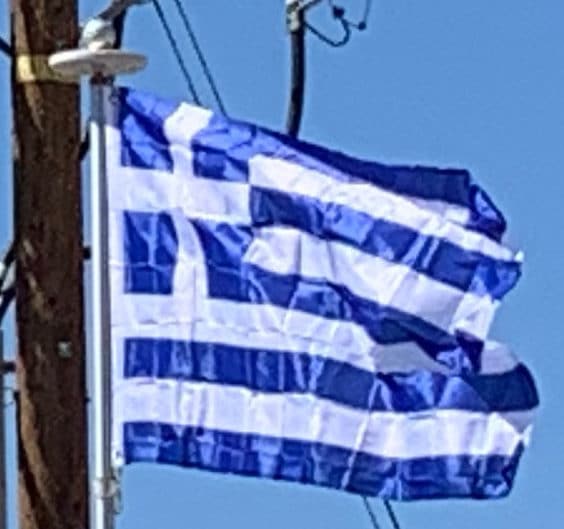
Lack of political unity within Greece resulted in frequent conflict between Greek states. The most devastating intra-Greek war was the Peloponnesian War (431–404 BC), won by Sparta and marking the demise of the Athenian Empire as the leading power in ancient Greece. Both Athens and Sparta were later overshadowed by Thebes and eventually Macedon, with the latter uniting most of the city-states of the Greek hinterland in the League of Corinth (also known as the Hellenic League or Greek League) under the control of Phillip II. Despite this development, the Greek world remained largely fragmented and would not be united under a single power until the Roman years. Sparta did not join the League and actively fought against it, raising an army led by Agis III to secure the city-states of Crete for Persia.

Following the assassination of Phillip II, his son Alexander III (“The Great”) assumed the leadership of the League of Corinth and launched an invasion of the Persian Empire with the combined forces of the League in 334 BC. Undefeated in battle, Alexander had conquered the Persian Empire in its entirety by 330 BC. By the time of his death in 323 BC, he had created one of the largest empires in history, stretching from Greece to India. Upon his death, his empire split into several kingdoms, the most famous of which were the Seleucid Empire, Ptolemaic Egypt, the Greco-Bactrian Kingdom, and the Indo-Greek Kingdom. Many Greeks migrated to Alexandria, Antioch, Seleucia, and the many other new Hellenistic cities in Asia and Africa. Although the political unity of Alexander’s empire could not be maintained, it resulted in the Hellenistic civilization and spread the Greek language and Greek culture in the territories conquered by Alexander. Greek science, technology, and mathematics are generally considered to have reached their peak during the Hellenistic period.
Hellenistic and Roman Periods (323 BC – 4th century AD):
After a period of confusion following Alexander’s death, the Antigonid dynasty, descended from one of Alexander’s generals, established its control over Macedon and most of the Greek city-states by 276 BC. From about 200 BC the Roman Republic became increasingly involved in Greek affairs and engaged in a series of wars with Macedon. Macedon’s defeat at the Battle of Pydna in 168 BC signaled the end of Antigonid power in Greece. In 146 BC, Macedonia was annexed as a province by Rome, and the rest of Greece became a Roman protectorate.

The process was completed in 27 BC when the Roman Emperor Augustus annexed the rest of Greece and constituted it as the senatorial province of Achaea.Despite their military superiority, the Romans admired and became heavily influenced by the achievements of Greek culture, hence Horace’s famous statement: Graecia capta ferum victorem cepit (“Greece, although captured, took its wild conqueror captive”). The epics of Homer inspired the Aeneid of Virgil, and authors such as Seneca the younger wrote using Greek styles. Roman heroes such as Scipio Africanus, tended to study philosophy and regarded Greek culture and science as an example to be followed. Similarly, most Roman emperors maintained an admiration for things Greek in nature. The Roman Emperor Nero visited Greece in AD 66, and performed at the Ancient Olympic Games, despite the rules against non-Greek participation. Hadrian was also particularly fond of the Greeks. Before becoming emperor, he served as an eponymous archon of Athens.
